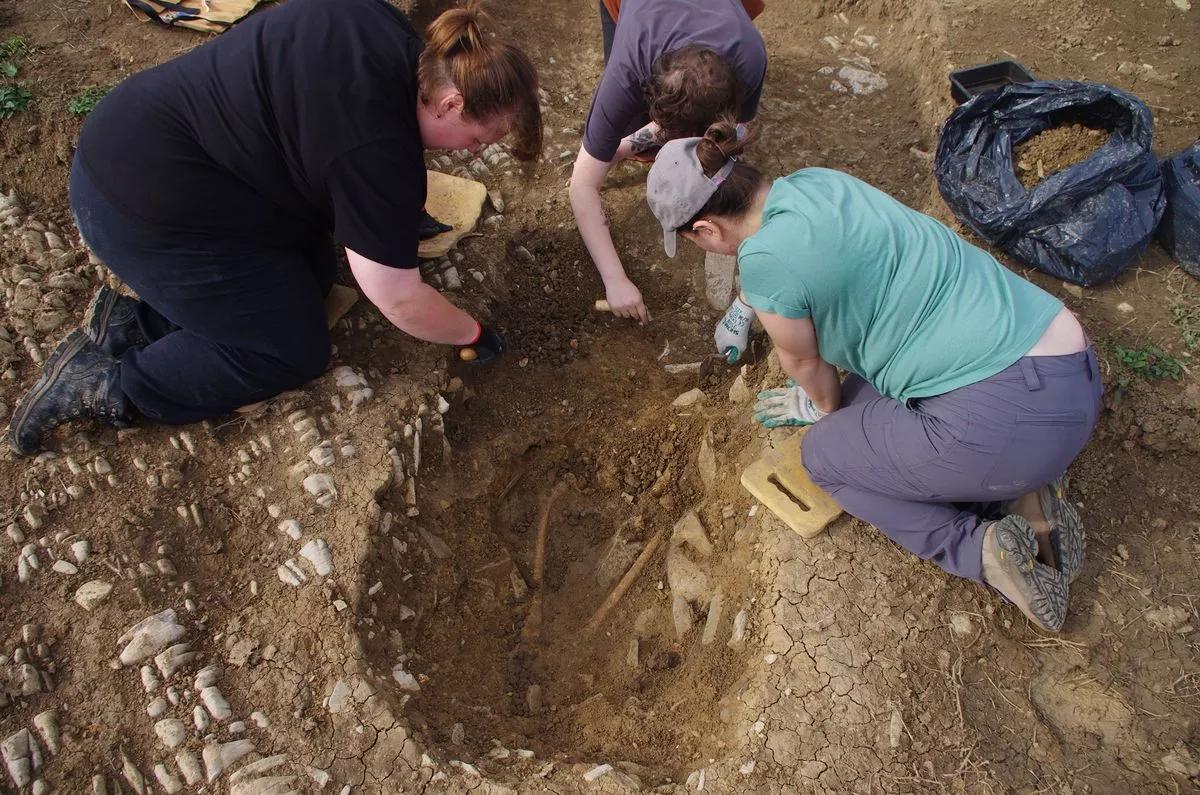A cemetery dating from the sixth and seventh centuries containing rare artefacts and bodies placed in a crouched position has been unearthed in Wales. Around 80 bodies—buried around 1,500 years ago—are thought to be interred at the site within the grounds of Fonmon Castle near Barry, Vale of Glamorgan.
The site, excavated in the past three years by specialists from the universities of Cardiff and Reading, is close to the end of the runway at Cardiff airport. The dig at Fonmon Castle, and accompanying new research, features in the BBC2 programme, Digging for Britain, which is due to be screened on 4 January.
Many of the skeletons unearthed at the cemetery are lying flat on their backs while others are placed on their sides; a few individuals, some of them women, are buried in a crouching position with their knees tucked up against their chest.
The archaeologists have also found fragments of glass from Bordeaux and pottery from North Africa, reflecting the privileged status of the people buried on site. Metal working debris was also found while another find, a small bone peg, may have been used as a marker in a game or as a tuning peg for a musical instrument
“We tend to think of the West of Britain as the Celtic Fringe but it is anything but, it was fully a part of the wider post-Roman world,” Andy Seaman, a lecturer in early medieval archaeology at Cardiff University, told the Daily Mail. “The presence of the important pottery and glass suggests activity of some status and significance.”
Tudur Davies, another member of the team, told the BBC: "The evidence we've got here is that the people have access to very high quality imported goods, that you can only get through trading or exchange networks, with people with a lot of wealth, to bring it here.”
Fonmon Castle was built as a defensive keep around 1180; excavations at the site will continue for the next few years.


